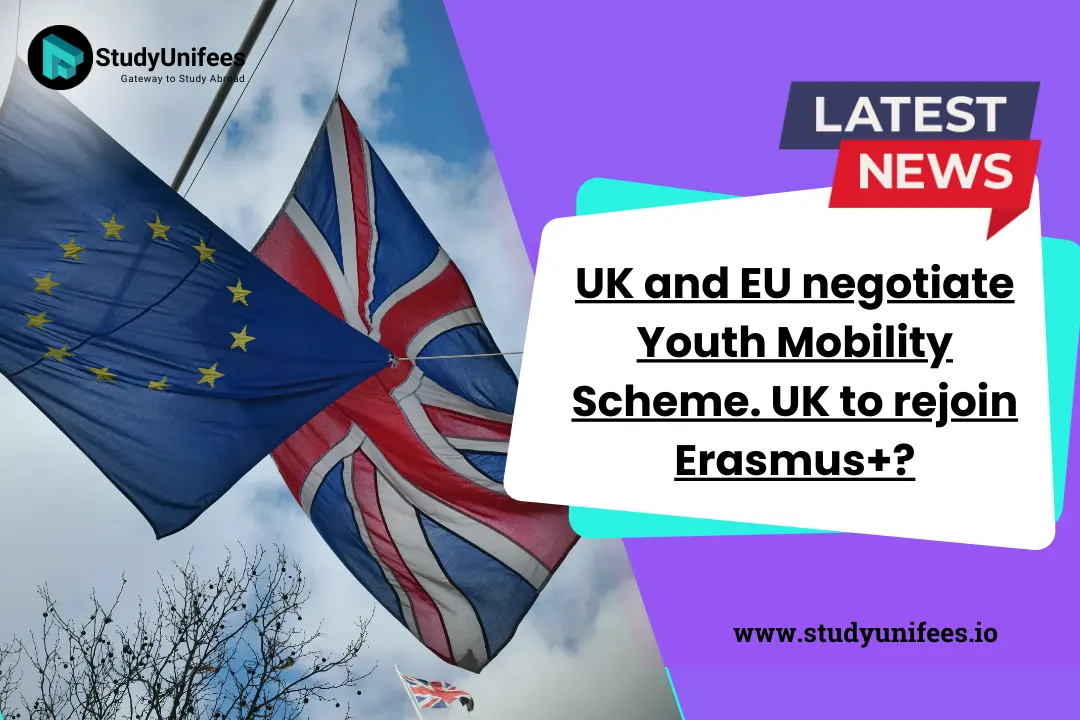UK and EU negotiate Youth Mobility Scheme. UK to rejoin Erasmus?

UK and EU negotiate Youth Mobility Scheme. UK to rejoin Erasmus?
In a pivotal development signaling a thaw in post-Brexit relations, the United Kingdom and the European Union have embarked on negotiations to establish a reciprocal youth mobility scheme, a move that could presage the UK’s reintegration into the Erasmus+ programme under newly negotiated terms. The initiative, formalized during the UK-EU summit on May 19, 2025, reflects a concerted effort to restore opportunities for young people to live, work, and study across borders, while navigating the labyrinthine complexities of political sensitivities and fiscal constraints.
A Framework for Youth Mobility
The proposed scheme, targeting individuals aged 18 to 30, aims to facilitate time-limited sojourns for work, study, volunteering, or cultural exploration. Unlike the unfettered freedom of movement that characterized the UK’s erstwhile EU membership, this initiative is meticulously circumscribed. The UK, wary of domestic apprehensions regarding immigration, advocates for stringent caps on participant numbers and visa durations of one to two years, potentially extendable, mirroring its extant youth mobility arrangements with 13 non-EU nations, such as Australia and Canada. In 2023, these schemes issued approximately 24,000 visas, underscoring their controlled yet impactful scope.
The EU, initially proposing a more expansive four-year visa framework without quotas, has signaled a willingness to compromise. Recent deliberations suggest a possible convergence on 12-month visas with provisions for extension, alongside sector-specific restrictions to assuage concerns about labor market saturation. However, contentious issues persist, notably the EU’s earlier proposition that its students pay domestic tuition fees in the UK—capped at £9,535—rather than the exorbitant international rates, which can reach £38,000. UK universities, reeling from financial pressures, have decried this as untenable, citing the historical asymmetry in student flows favoring EU entrants. Similarly, the UK’s insistence on maintaining the Immigration Health Surcharge for EU participants underscores its commitment to fiscal prudence and migration control.
The Erasmus+ Question
Central to the discourse is the tantalizing prospect of the UK’s reassociation with Erasmus+, the EU’s flagship programme for education, training, youth, and sport. Prior to Brexit, Erasmus+ facilitated seamless exchanges for students and academics, fostering cross-cultural collaboration. The UK’s withdrawal, driven by concerns over disproportionate costs and imbalanced participation, led to the creation of the Turing Scheme, a domestic alternative criticized for its limited scope. Rejoining Erasmus+ could reinvigorate academic mobility, but the UK demands significantly ameliorated financial terms to address past grievances, particularly the imbalance wherein more EU students studied in the UK than vice versa.
The ongoing negotiations, expected to intensify by autumn 2025, hinge on resolving these fiscal and logistical intricacies. The EU’s push for equitable tuition fees remains a formidable obstacle, as does the UK’s reticence to subsidize a programme perceived as disproportionately benefiting EU participants. Nevertheless, the Labour government, under Prime Minister Keir Starmer, has expressed cautious optimism, viewing reassociation as a potential boon for cultural diplomacy and the UK’s soft power, particularly in sectors like higher education and English language instruction.
Political and Public Dynamics
The negotiations are fraught with political undercurrents. In the UK, Starmer’s Labour government treads a delicate path, balancing its commitment to a “reset” in EU relations with domestic pressures from critics, including Reform UK and segments of the Conservative Party, who decry the scheme as a surreptitious return to free movement. Such claims, however, appear overstated, given the scheme’s capped and temporary nature. A YouGov poll from April 2024 revealed 53% of Leave voters support youth mobility, suggesting a reservoir of public goodwill, yet immigration remains a volatile issue.
On the EU side, member states, led by powerhouses like France and Germany, insist on a bloc-wide agreement to prevent the UK from securing bespoke bilateral deals, a strategy perceived as “cherry-picking.” The negotiations are further complicated by linkages to other priorities, including fisheries access post-2026 and veterinary agreements, creating a multifaceted diplomatic tapestry.
Broader Implications
The youth mobility scheme, if realized, promises to rejuvenate opportunities curtailed by Brexit, fostering cross-cultural exchange and addressing labor shortages in sectors like hospitality. Over 60 Labour MPs, alongside advocacy groups like the European Movement UK, champion the initiative for its economic and cultural dividends. Universities, too, see it as a lifeline to restore their global allure, particularly in the lucrative English language teaching sector.
Yet, challenges abound. In the EU, high youth unemployment in countries like Spain—where over 25% of under-25s are jobless—raises concerns about exacerbating domestic pressures. In the UK, the government must navigate fiscal constraints and public skepticism to secure a deal that aligns with national interests.
Looking Ahead
As negotiations progress, the UK and EU stand at a crossroads. The youth mobility scheme, while modest in scope, represents a tangible step toward mending post-Brexit fractures. The prospect of rejoining Erasmus+ looms as a potential milestone, contingent on navigating the intricate interplay of financial, political, and logistical considerations. With both sides poised for further talks, the coming months will determine whether this initiative heralds a new chapter in UK-EU collaboration or succumbs to the perennial tensions of sovereignty and reciprocity.
